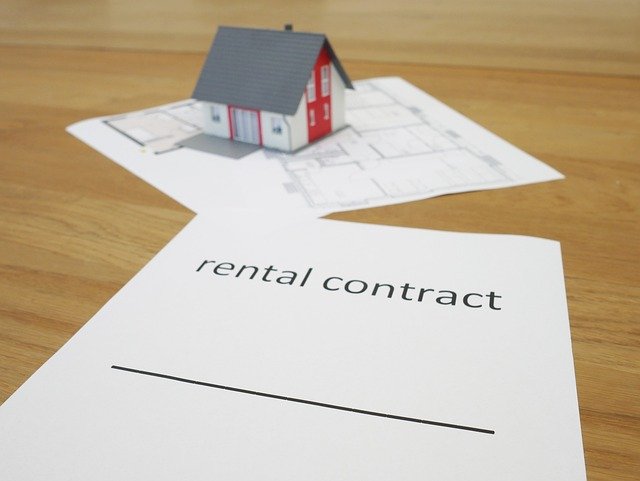Student Apartments for Rent: Your Complete Guide
Finding suitable student accommodation can be one of the most challenging aspects of university life. With rising living costs and limited availability in popular university towns, students need practical strategies to secure affordable, comfortable housing. This comprehensive guide explores everything you need to know about finding student apartments for rent, from understanding rental markets to implementing effective searching tips that will help you secure the perfect place to call home during your studies.

What Makes Student Apartments Different from Regular Rentals?
Student apartments for rent are specifically designed or marketed to meet the unique needs of university students. These properties typically feature flexible lease terms that align with academic calendars, often running from September to June rather than the standard 12-month agreements. Many student apartments come furnished or semi-furnished, eliminating the need for students to invest in furniture they may not need long-term.
Location plays a crucial role in student housing, with most properties situated within walking distance of university campuses or along reliable public transport routes. Student apartments often include utilities in the rent price, making budgeting more straightforward for students managing limited finances. Additionally, these properties frequently offer communal spaces designed to foster social interaction among residents.
How Can You Find Affordable Student Apartments for Rent?
Searching for affordable student apartments for rent requires a strategic approach and early planning. Start your search at least four to six months before your intended move-in date, as the best properties are typically snapped up quickly. University accommodation services often maintain lists of approved private landlords and can provide valuable guidance on local rental markets.
Online platforms like SpareRoom, Rightmove, and Zoopla offer extensive listings, but don’t overlook social media groups and university notice boards where students often advertise room shares. Consider sharing accommodation with flatmates to reduce individual costs significantly. Areas slightly further from campus often offer better value while still maintaining good transport links.
What Should You Look for During Property Viewings?
Property viewings are essential when searching for student apartments. Schedule viewings during different times of day to assess noise levels, natural light, and neighbourhood atmosphere. Check that all appliances work properly, inspect for signs of damp or maintenance issues, and ensure adequate heating throughout the property.
Pay attention to security features, including secure entry systems and window locks. Examine the condition of communal areas, as these reflect how well the property is maintained. Don’t hesitate to ask about recent renovations or planned maintenance work that might affect your tenancy.
How Do Rental Costs Vary Across Different University Cities?
Understanding rental costs helps in budgeting effectively for student accommodation. London typically commands the highest rents, with students paying between £150-£300 per week for shared accommodation. Manchester and Birmingham offer more moderate pricing, ranging from £80-£150 weekly. Northern cities like Newcastle and Sheffield provide excellent value, with quality student accommodation available from £60-£120 per week.
Edinburgh experiences seasonal price fluctuations due to tourism, while cities like Bath and Oxford maintain consistently high prices due to limited housing stock. Consider the total cost of living, including transport, groceries, and utilities, when comparing different locations.
What Legal Protections Exist for Student Tenants?
Student tenants in the UK enjoy the same legal protections as other renters under the Housing Act. Your deposit must be protected in a government-approved tenancy deposit scheme within 30 days of payment. Landlords must provide an Energy Performance Certificate and gas safety certificate for properties with gas appliances.
You have the right to live in a property that meets basic safety standards and is free from serious health hazards. If problems arise, contact your university’s accommodation office or local Citizens Advice Bureau for support. Keep detailed records of all communications with landlords and document any property issues with photographs.
Which Providers Offer the Best Student Accommodation Options?
Several established providers specialise in student accommodation across the UK, each offering different advantages and price points. Understanding your options helps in making informed decisions about where to live during your studies.
| Provider | Average Weekly Rent | Key Features |
|---|---|---|
| Unite Students | £120-£280 | Purpose-built accommodation, 24/7 support, all bills included |
| IQ Student Accommodation | £110-£250 | Modern facilities, flexible contracts, social events |
| Fresh Student Living | £100-£220 | Eco-friendly buildings, study spaces, gym facilities |
| Private Landlords | £70-£200 | Varied quality, negotiable terms, local knowledge |
| University Halls | £80-£180 | Guaranteed accommodation, campus integration, peer support |
Prices, rates, or cost estimates mentioned in this article are based on the latest available information but may change over time. Independent research is advised before making financial decisions.
Conclusion
Securing suitable student accommodation requires careful planning, thorough research, and realistic expectations about costs and availability. Start your search early, utilise multiple resources, and don’t compromise on safety or legal protections. Remember that the cheapest option isn’t always the best value when considering factors like location, condition, and included amenities. By following these searching tips and understanding the student rental market, you’ll be well-equipped to find affordable student apartments for rent that enhance rather than hinder your university experience.




